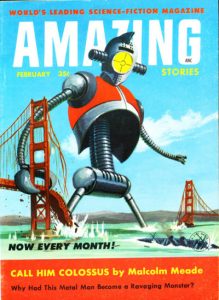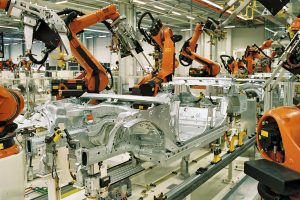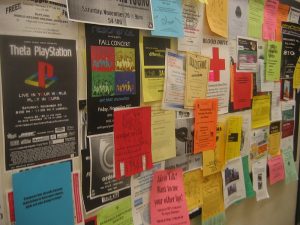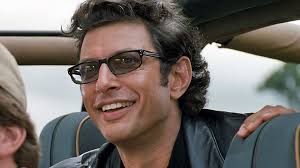
Robots attacking humankind
I ran across an interesting article on LinkedIn this morning. It was about the possibility of a global catastrophic disaster because of exponential technology
A.I. is going to find a way to do away with humankind. Genetically modified organisms will overrun our ecosystems . Nanotech will run rampant and destroy earth. Not sure if those are my top concerns right this minute—those things might happen someday, but I do feel like we have some time before then. However I do hear and see more immediate concerns, fears, and opinions about our current technologies that I wanted to address. Many of the thoughts from the public come from a misunderstanding, or lack of understanding, of technology. Often times simplified overreactions based on inaccurate assumptions and incorrect information.

Robots can do repetitive work that humans don’t enjoy
- Robots are taking our jobs
- Technology is hurting our kids
- A.I. is having a tremendous impact on society
I am about as techno-techy as the come, but I consider myself lucky to have had the incredible opportunity of knowing a world before cell phones, without internet, without hard disks, without GPS, without Alexa and Siri, and without online shopping. We used actual bulletin boards as our social media “walls”. Mix tapes were our Spotify.

Facebook and Instagram feed before Facebook and Instagram existed
Then we started to see some cool, but still hard-to-use technologies. I remember my dad and I would drive 30 minutes to go to the Commodore Vic-20 users group every month. The movie War Games came out and shocked the world about a computer that could “think” and control military decisions, and yet it was a human that actually saved the world…by helping the technology understand how humans think. One of my friends had a part time job at Clemson numbering punch cards in a big stack. Dad and I spent hours typing in page after page of assembly language code(Adam will love this) from Compute magazine just to play a game. I was excited when the technology advanced so I could actually load a saved game—it took over an hour, so I used to start the load before school so when I got home, it was ready.
Fast forward to 2020 to a dramatically different world. I have more power in my old cell phone than NASA had when they sent rockets to the moon. GPS can guide my navigation within just a few feet anywhere on the planet. Almost all knowledge is available online and searchable at my finger tips. The newest smart phones have cameras with better vision than my eye. I can see who’s at my front door while I am sitting on the beach in Hawaii. I can get an online masters college degree from one of the top schools on the planet without leaving the living room. You can take a class at M.I.T or Harvard for free or spend a few months earning a nano-degree at Udacity. I can communicate with my wife in real time while flying in an airplane. Cars can autonomously navigate and drive with accident rates thousands of times better than humans. Students in high school are learning how to write software programs in a Computer Science class that at one time would have only been possible to write by engineers. Survival rates for terrible diseases are improving. A.I. can detect and interpret data that would take humans decades to do.
So I have seen the world before, during, and “after” (sorta) the emergence of easily accessible technology. Tremendous good has come from advancements in technology.
Technology has allowed us to know things, detect things, understand things, respond to things, fix things, make things, learn things, ask things, relate things, predict things…..in ways simply not possible before.
And yet the nay-sayers, haters, and trollers of our cancel culture seem to only identify what is wrong, or could go wrong, with technology. Many of these observations stem from fear of the unknown, lack of understanding, misunderstanding, or just an inability to see the world with different eyes. There is some truth to what they are saying though. While there is much that can go right with well managed and planned technology, there are also things that can go wrong with lack of planning and thoughtfulness.

Did people think the car was gonna ruin society?
I have been in technology for 25+ years, the one thing I am sure of is that technology is less about hardware and software and gadgets and more about people that use it. Ultimately, the technologies we develop allow us to make a better world for people…so we can be healthier, be safer, have more fun, be more connected, be more effective, be more efficient, understand more about each other, and learn more about our planets resources. But as Spiderman says, “…with great power comes great responsibility…” I am not suggesting that technology is all glory and doesn’t come with great responsibility. In fact, quite the opposite—We have a huge obligation.
 But, we don’t have to be afraid of the amazing technologies that are changing the world around us.
But, we don’t have to be afraid of the amazing technologies that are changing the world around us.
We do need to think deeply about it, be purposeful, ask lots of questions, be thoughtful, be ethical and moral, in other words manage the progression and incorporation of technology. Otherwise it manages itself—or worse—it just happens. Dr. Malcolm identifies this in Jurassic Park; he questions whether the scientists were ever asking whether or not they should, as opposed to whether or not they could. He suggests life will find a way. Hmmmm…will technology, too, find a way? It’s good question.

lawlessness and thoughtlessness in technology

Zuckerburg was amazed at the lack of understanding of modern technology in business
But we are the people. We get to decide what happens in our world. We get to make decisions about what we want and don’t want. We get to decide what and how we teach our younger generations(although be careful, they are also able to learn on their own). We get to decide what we buy. We get to decide who we support. We get to decide what questions to ask, and also how we respond. In short, we get to decide what technology we invest in, use, improve, buy, and promote. Businesses decide how they will incorporate technology into their products and consumers decide what they are willing to “allow” by voting with their wallets and votes and picket signs. I am not suggesting that technology is going to advance anyway, so we just accept it. Far from it. Technology will advance as much as we want it to…in the ways we decide, based on where we spend our research dollars, time, and effort. Our laws can help keep us moving forward but in ways that are fair, ethical, and legal. Our policies can help us decide which moral compasses we use to guide us. Our gut will help us do what’s right.
We are truly in the infancy stages of the “Age of Digital Technology”, and we do not need to be afraid of it if we think about technology intentionally, and take advantage of the best that it has to offer us. But, we as a people, have to be better at understanding technology, so that we can manage it, as opposed to the other way around. If possible, I would prefer to avoid a global catastrophic disaster. That would ruin the weekend.
